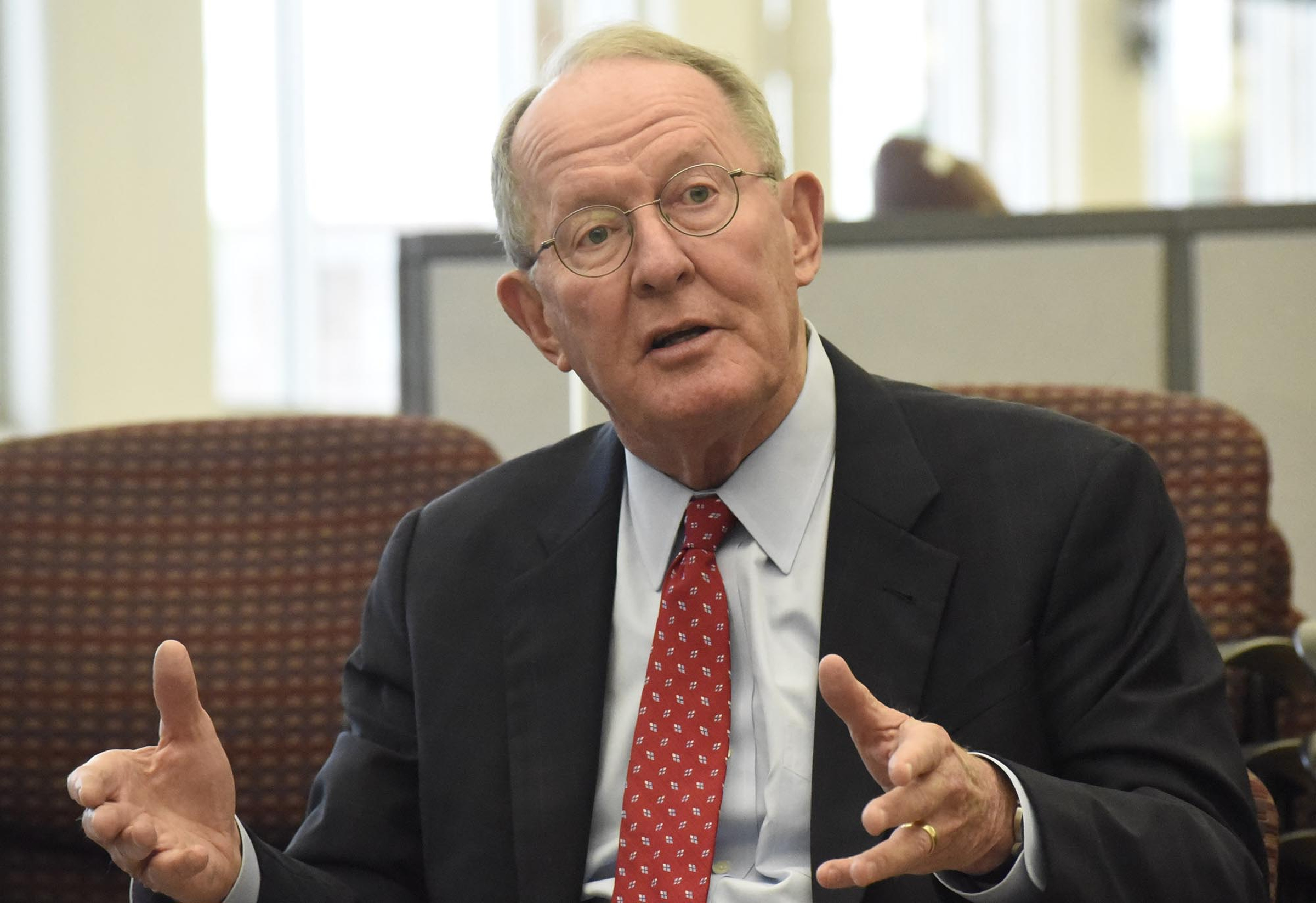Todd Johnson thought he knew which hospitals were in his family's health insurance network when his son needed emergency care after a mountain biking accident.
They drove to North Knoxville Medical Center, paid their co-payment, and doctors removed a large chunk of tree that had broken off in his son's arm.
Then, about a month later, the Johnsons received a surprise $1,800 bill from the emergency department's physician group, which happened to be out of their health plan's network even though the doctors worked at an in-network hospital.
"After I got that surprise bill and before it was resolved, I had my annual physical with my normal physician, and I was chatting with him about it," Johnson said. "He was telling me horror stories about colleagues - physicians. I thought, 'This is a physician, and they still can't negotiate the process.'"
Johnson's insurance company was able to work out a new payment on his behalf, but the process took several months and prompted him to write his senators.
"It's very frustrating as a consumer, because I feel like every time something like that happens my premiums go up," he said.
Two-thirds of Americans say they are either "very worried" or "somewhat worried" about their ability to afford unexpected medical bills, according to a 2018 poll from the Kaiser Family Foundation.
This spring, President Donald Trump directed Congress to come up with a solution to surprise billing, and lawmakers across the aisle agree consumers need better protection.
Several pieces of legislation targeting the issue are working their way through the House and Senate, with momentum behind the Lower Health Care Costs Act of 2019.
The bill, co-sponsored by Sens. Lamar Alexander, R-Tenn., and Patty Murray, D-Wash., promises to end surprise medical billing, increase price transparency and lower drug costs. It would save the federal government roughly $7.6 billion over the next decade, according to a Congressional Budget Office analysis released Tuesday."I hope we can present [this package] to Majority Leader McConnell and Minority Leader Schumer for the full Senate to consider [in July] and would expect that other committees will have their own contributions," Alexander said in a statement on June 26, after the bill passed 20-3 in the bipartisan Health, Education, Labor and Pensions Committee.
But the health care industry itself is far more divided over how to fix surprise billing than the bipartisan committee.
"We've been fighting about this for years, but the question always comes down to what the payment to physicians should be," said Dr. Chris Young, vice chief of staff at Erlanger Health System and a former president of the Tennessee Medical Association.
Sticker shock
Surprise medical bills can occur when patients have health insurance but are unable to choose their provider during emergencies. But most of the time, surprise bills happen when a patient goes to an in-network facility only to find out later that a medical provider who treated them does not contract with their insurance provider.
That's because many doctors who work in hospitals - especially anesthesiologists, radiologists, pathologists and emergency physicians - don't work for the hospitals and sometimes don't participate in the same health plan networks.
In order to protect against conflicts of interest, Tennessee law prohibits hospitals from directly employing people who work in those four specialties.
Young, who's an anesthesiologist, said surprise medical billing wasn't an issue until networks emerged.
"Insurance companies came up with networks as a way of saying we will send you patients in our network if you accept a discounted price," he said, adding that over time the number of networks grew. Now, when an insurer and provider can't agree on terms, the insurance company walks away and the provider becomes out-of-network for patients with that health plan.
Patients who receive care from out-of-network providers are responsible for paying the outstanding balance, known as the balance bill. That amount isn't covered by insurance, doesn't apply to out-of-pocket limits and uses the full service charge rather than the lower in-network rate.
"It's gotten so complicated, and patients have no idea how to interpret this. They don't understand why they are paying all this money on insurance and then still getting slapped with this massive bill," Young said.
In 2017, roughly one in six emergency room visits and inpatient hospital stays in the United States resulted in patients receiving at least one out-of-network medical bill, according to a Kaiser Family Foundation analysis of large employer claims data published in June.
Yolanda James, a spokeswoman for the Tennessee Hospital Association, said in an email hospitals notify patients of the potential for out-of-network bills. But since Tennessee hospitals don't employ anesthesiologists, radiologists, pathologists and emergency physicians, it's impossible for facilities to track the network status of those providers or know the amounts they will charge for services. That's because the details of commercial health insurance contracts are confidential.
"This places hospitals in a unique position to help guide patients in gathering necessary information without being an all-knowing source in the way insurance companies are," James said in an email.
Kelly Paulk, vice president of product strategy and individual markets at BlueCross BlueShield of Tennessee, said in an email that the insurer asks all in-network facilities to offer in-network providers to deliver services.
"In an emergency situation, we cover emergency room charges at in-network benefits for our members. If a BlueCross member reaches out to us after receiving a surprise bill, we work on behalf of that member to reduce or mitigate these additional charges," Paulk said.
Debating the difference
While all sides agree that patients should be held harmless, the debate centers around determining what providers are paid in the case of a surprise bill.
Alexander's bill would use a set "benchmark" rate to settle out-of-network claims. The method is favored by insurance companies and some employer groups but opposed by most doctors, hospitals and some conservatives who view rates set by the government as a threat to free market principles.
Young fears it gives too much power to insurers and undermines the doctor-patient relationship.
"They're not looking at the unintended consequences and what this means for patient care," he said. "It's a sledgehammer when you really need a scalpel to correct surprise billing."
Young and the Tennessee Hospital Association agree with other components of Alexander's package but prefer third party arbitration to settle payments, which some of the other legislation targeting surprise billing contain.
One of those is a bill sponsored by U.S. Reps. Phil Roe, R-Tenn., and Raul Ruiz, D-Calif., who are both physicians, called the Protecting People from Surprise Medical Bills Act. The legislation is based on a successful model in New York state to resolve medical billing issues through an independent dispute resolution process when an insurer and provider cannot agree on the cost of care.
"This is a persistent issue nationally and locally that has continued to receive increased attention from lawmakers, media and the public at large," James said. "It is important for all stakeholders - hospitals, physicians and insurers - to work together on equitable solutions that protect patients while ensuring fair compensation for services provided."
Contact Elizabeth Fite at efite@timesfreepress.com or 423-757-6673.

